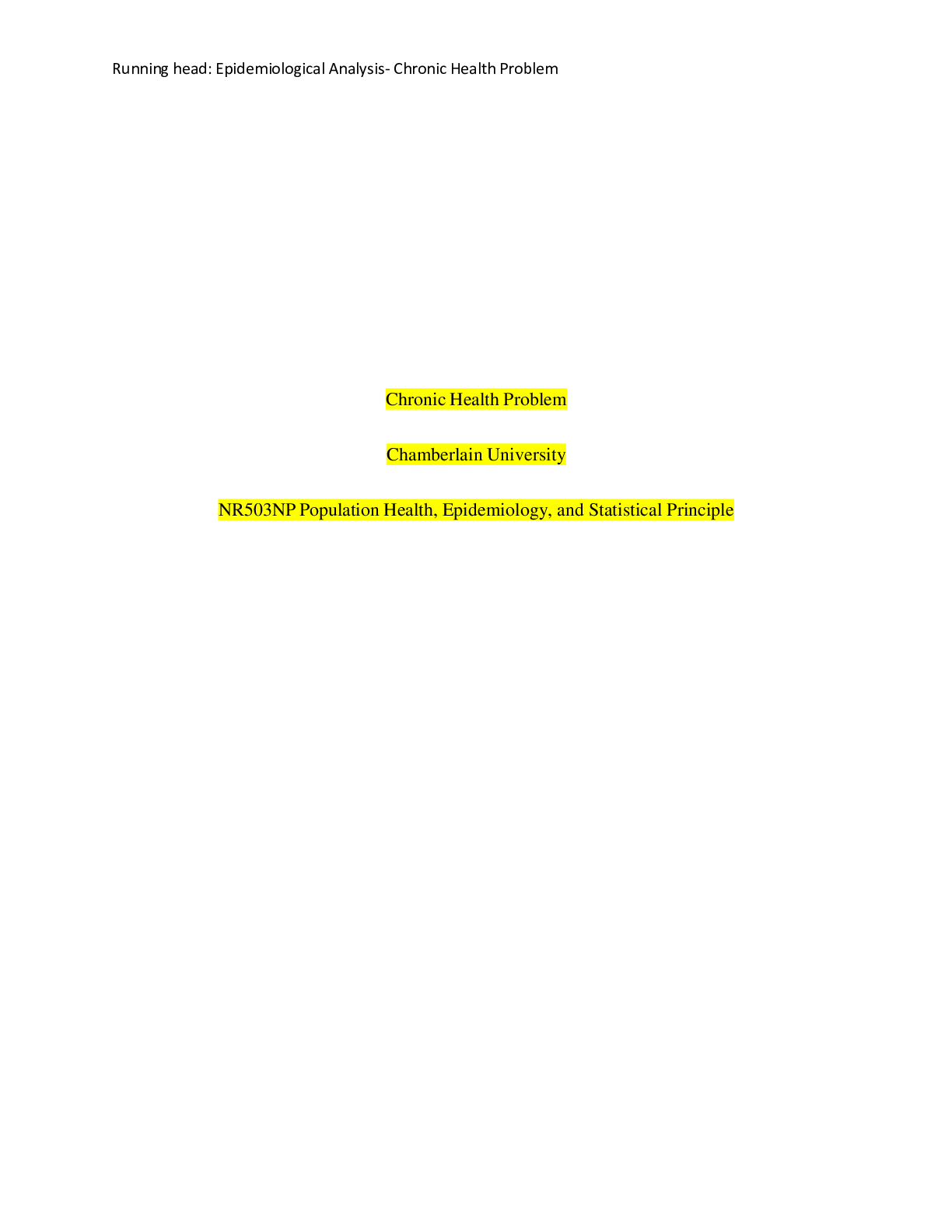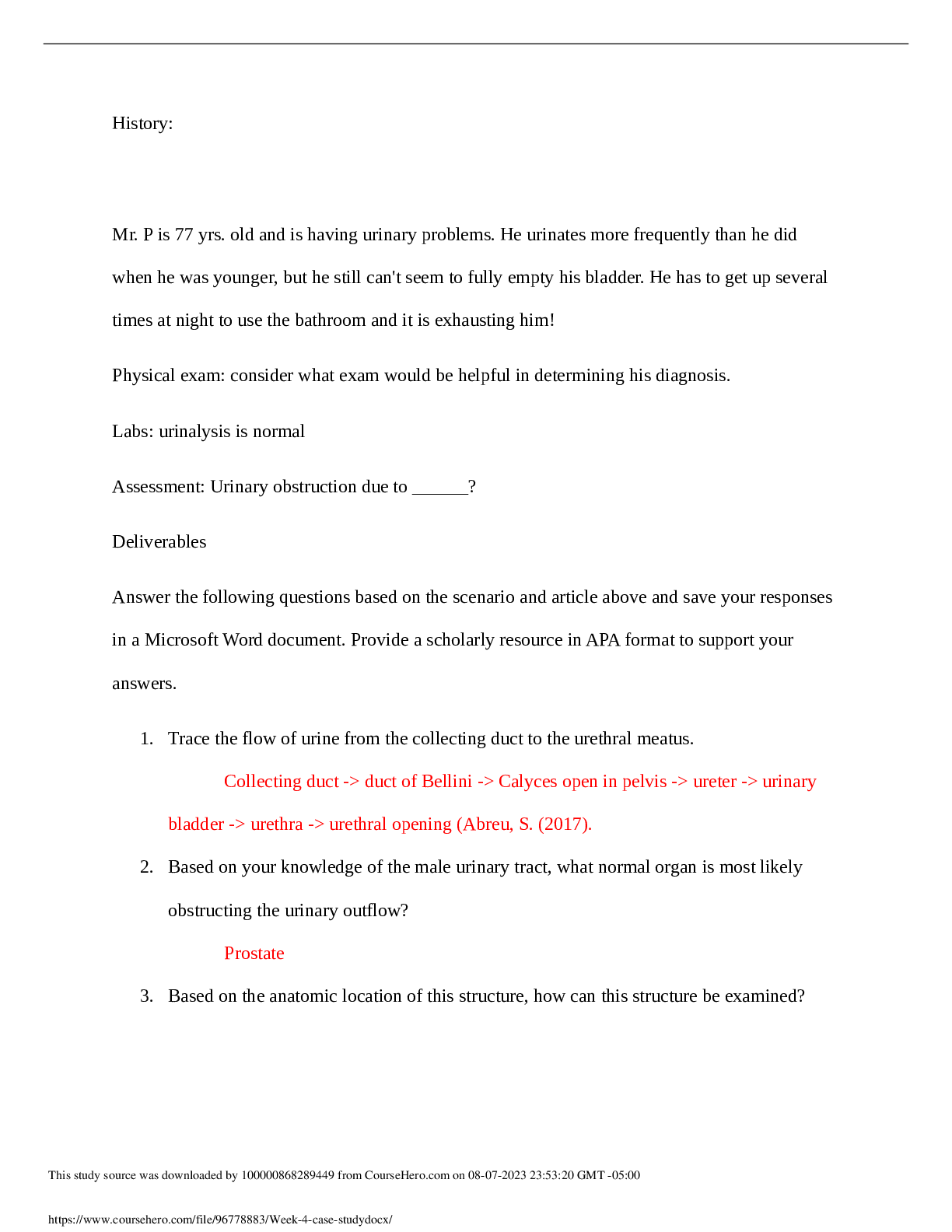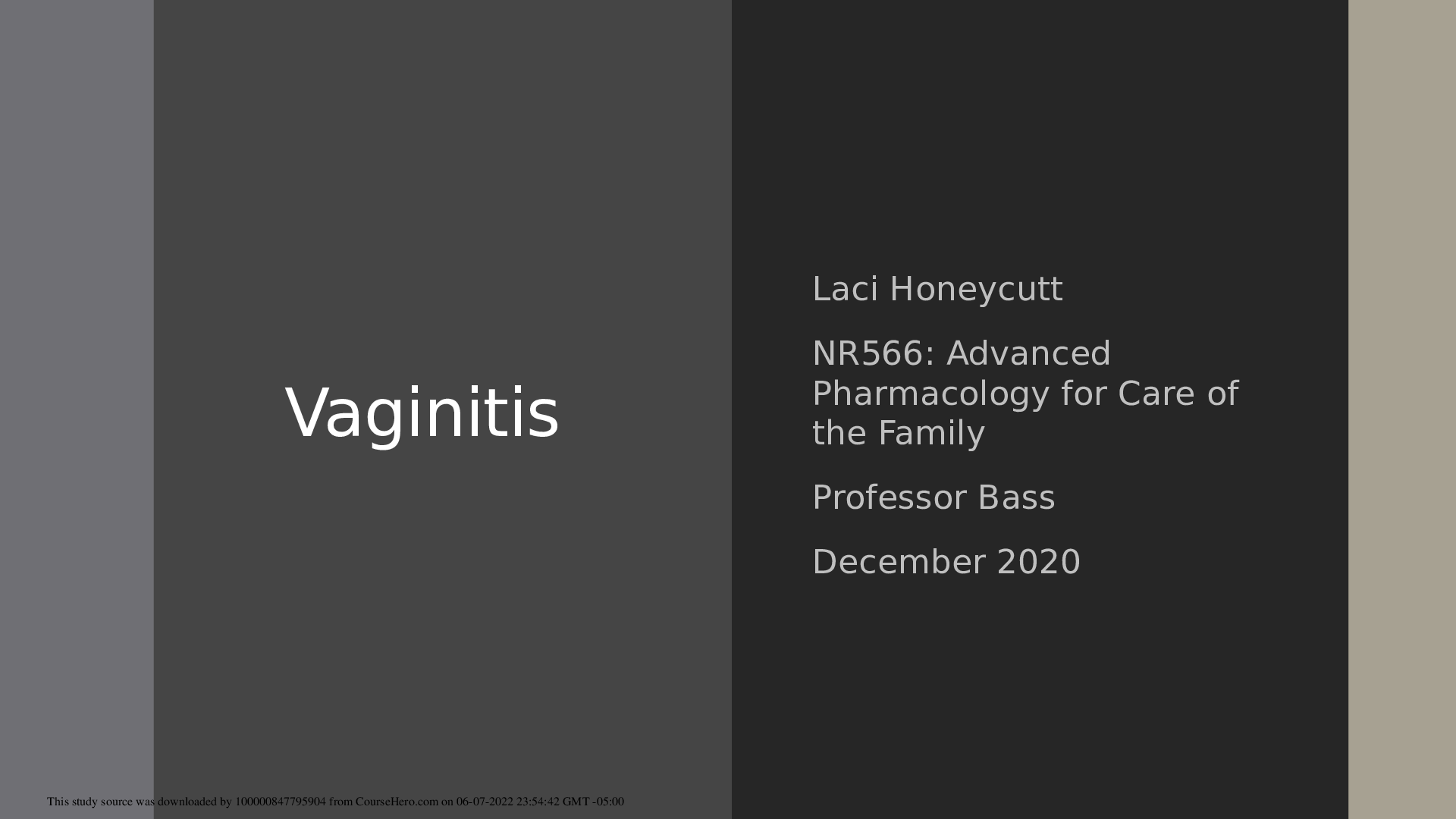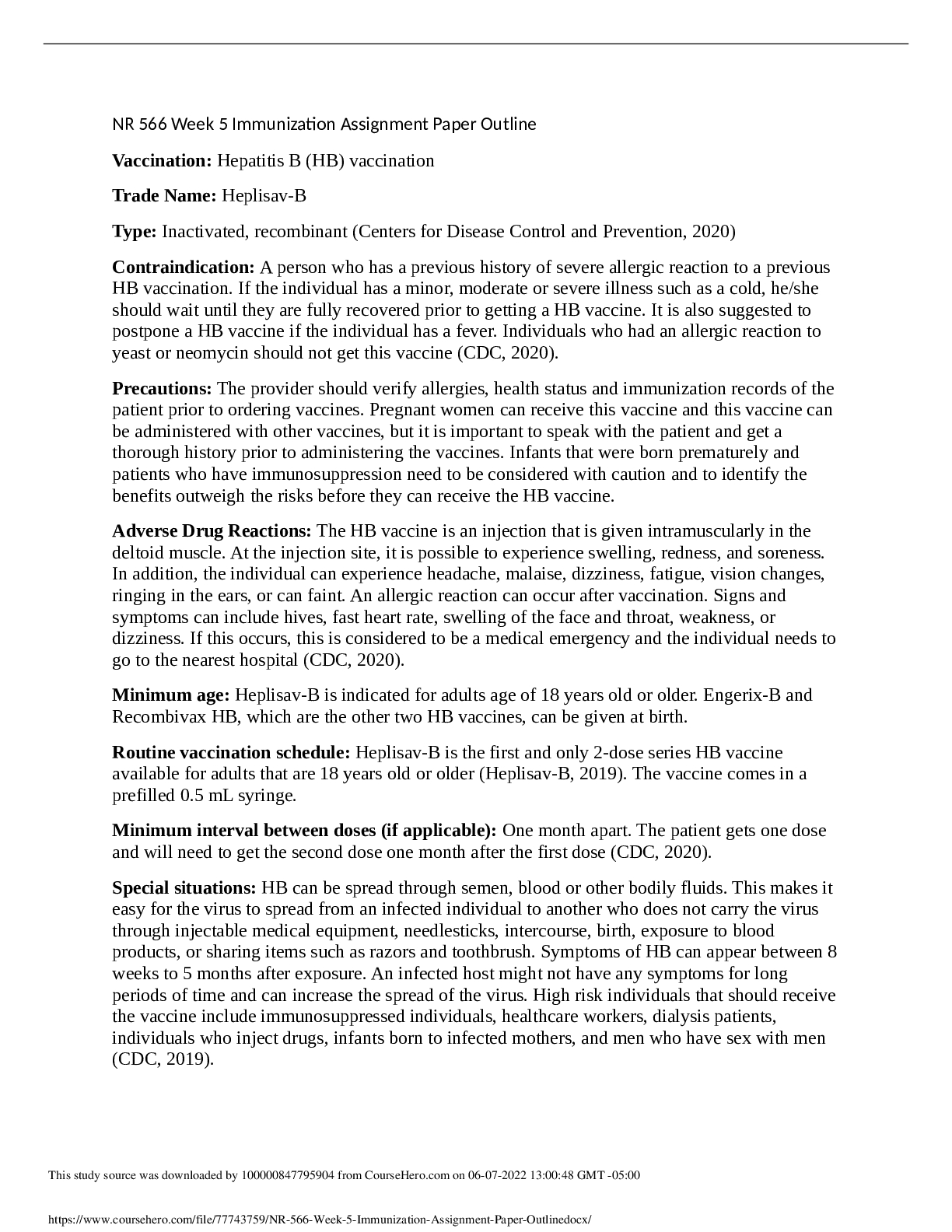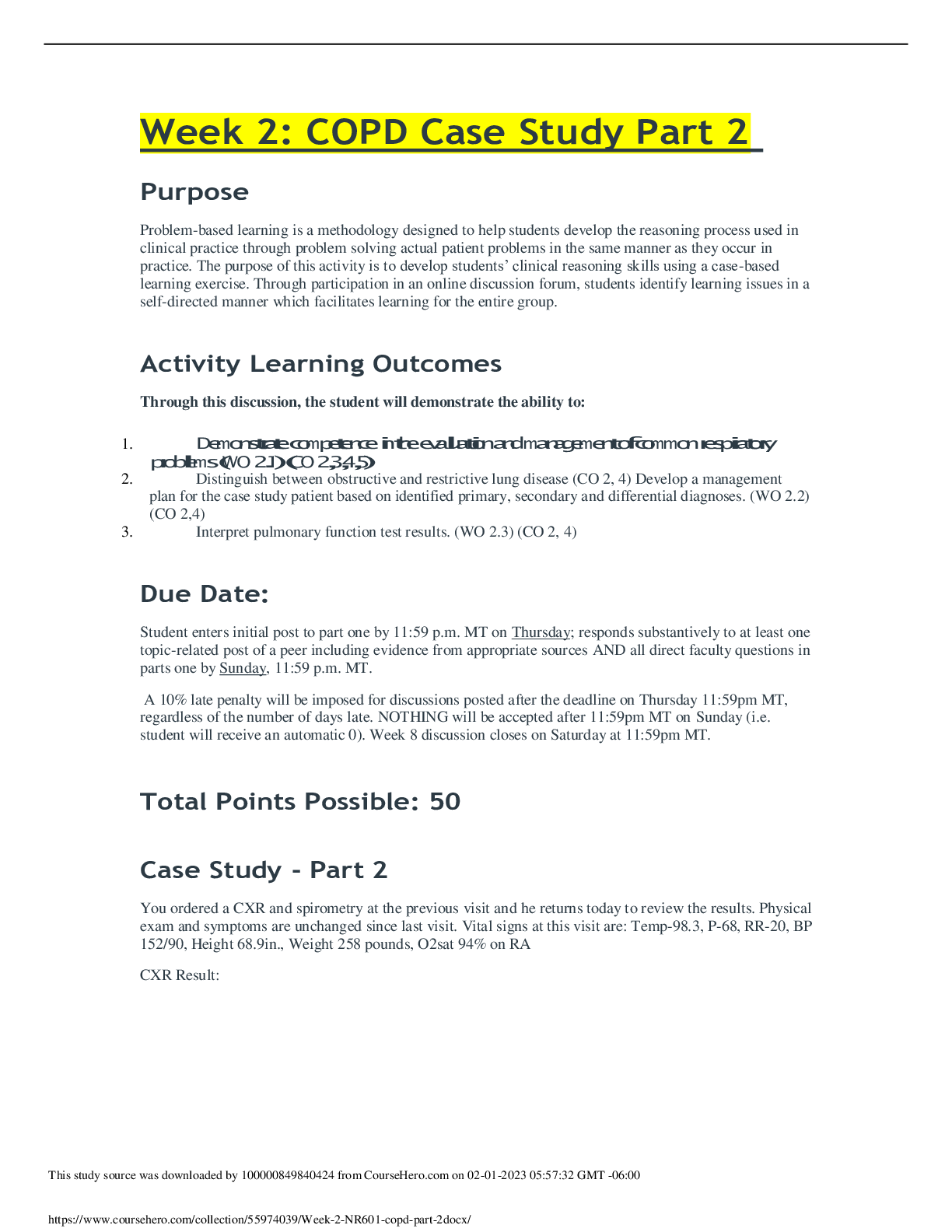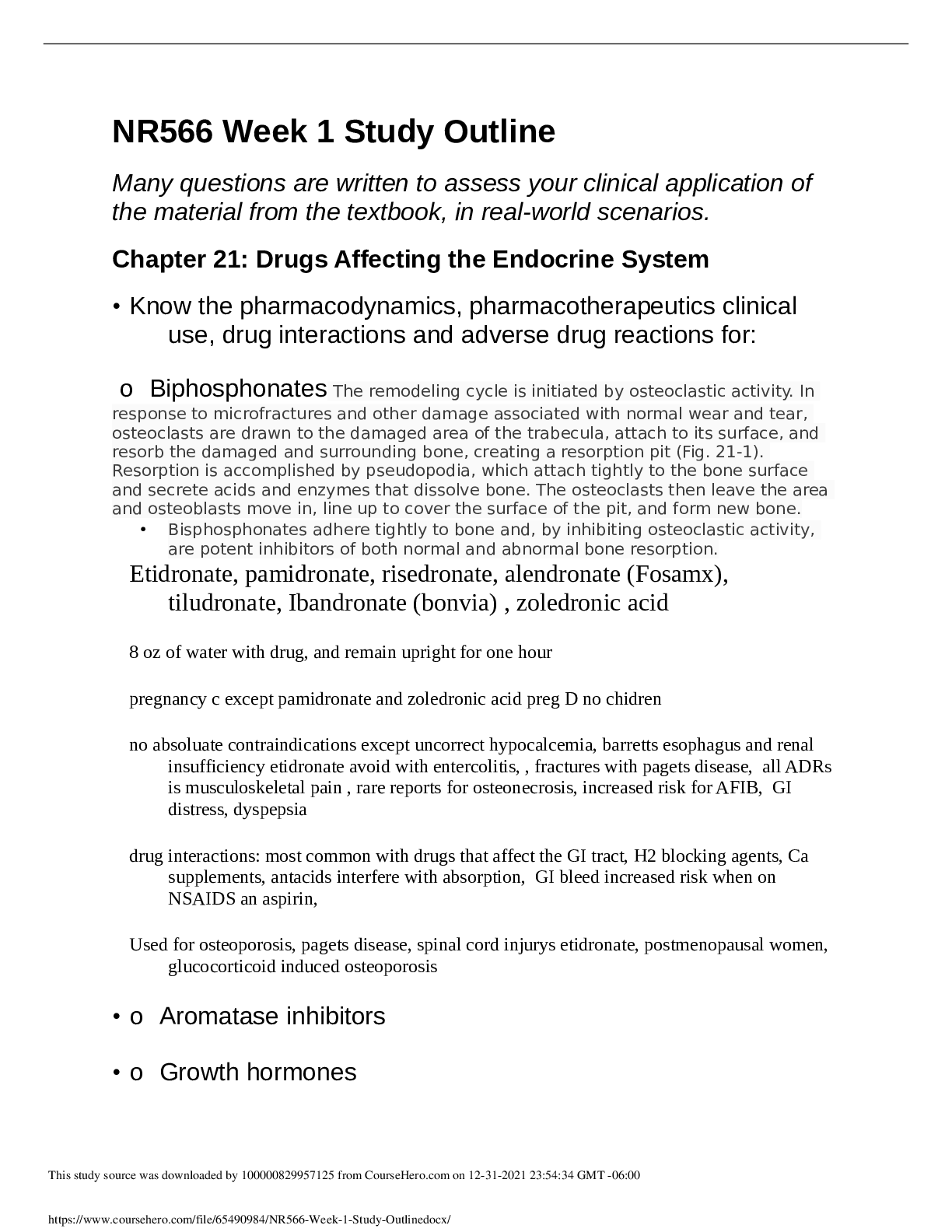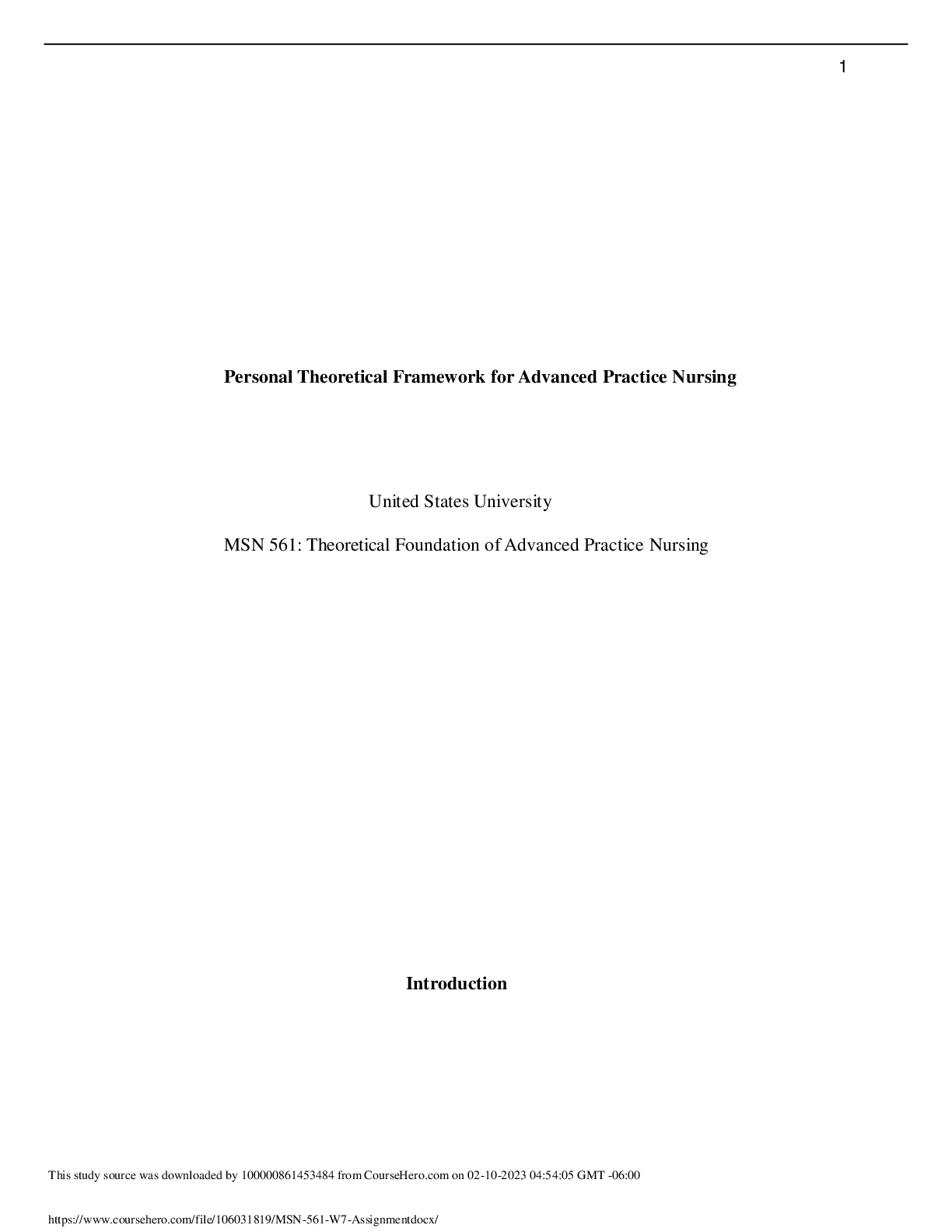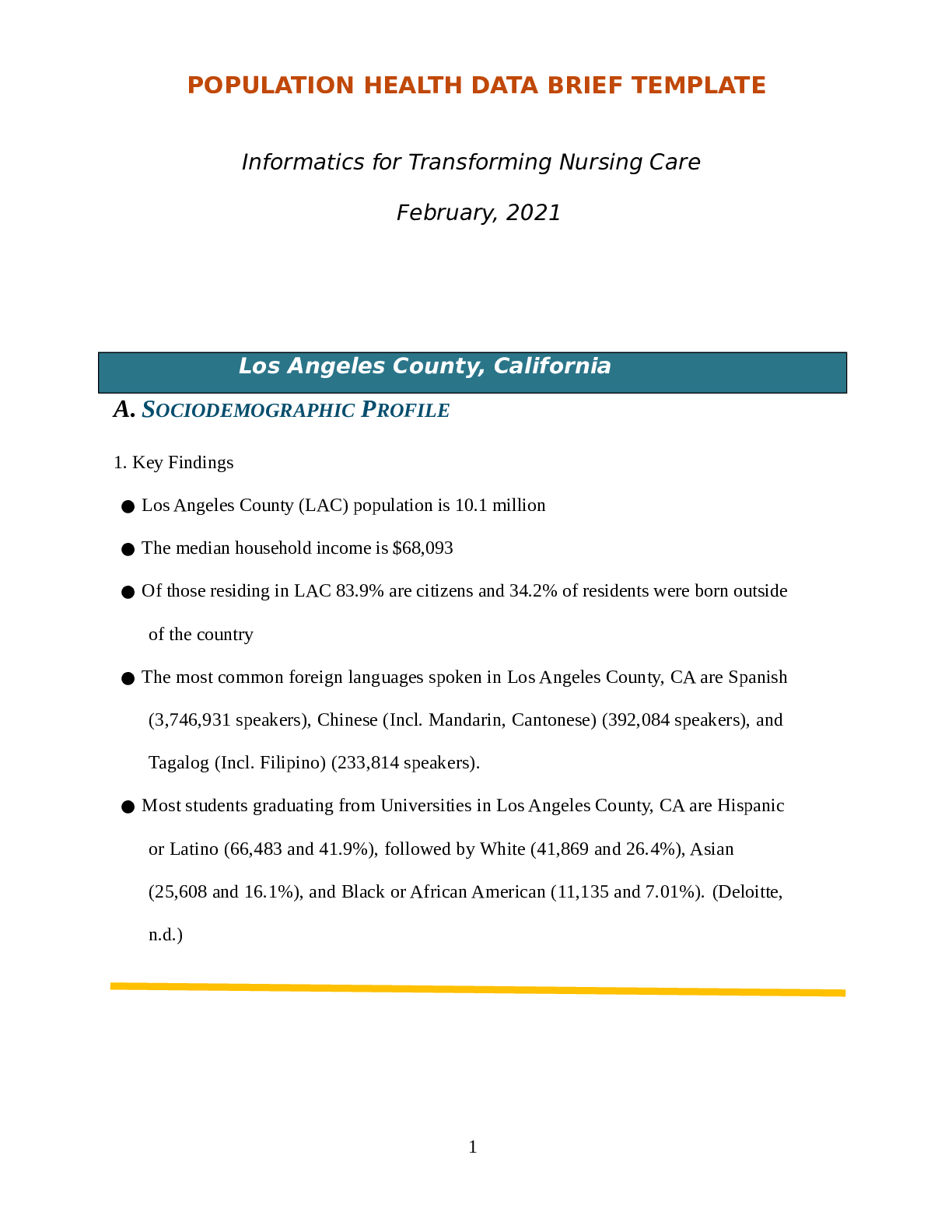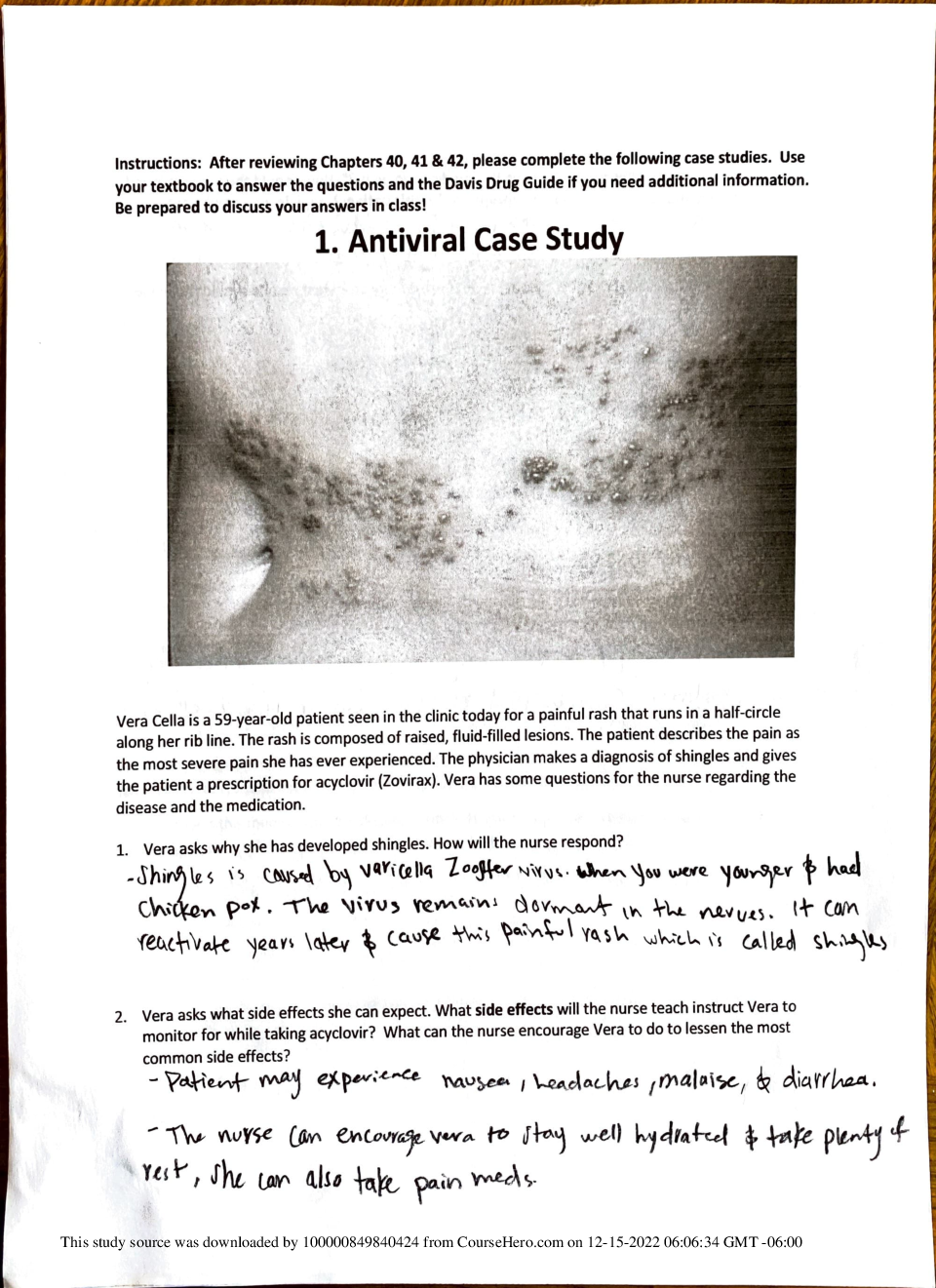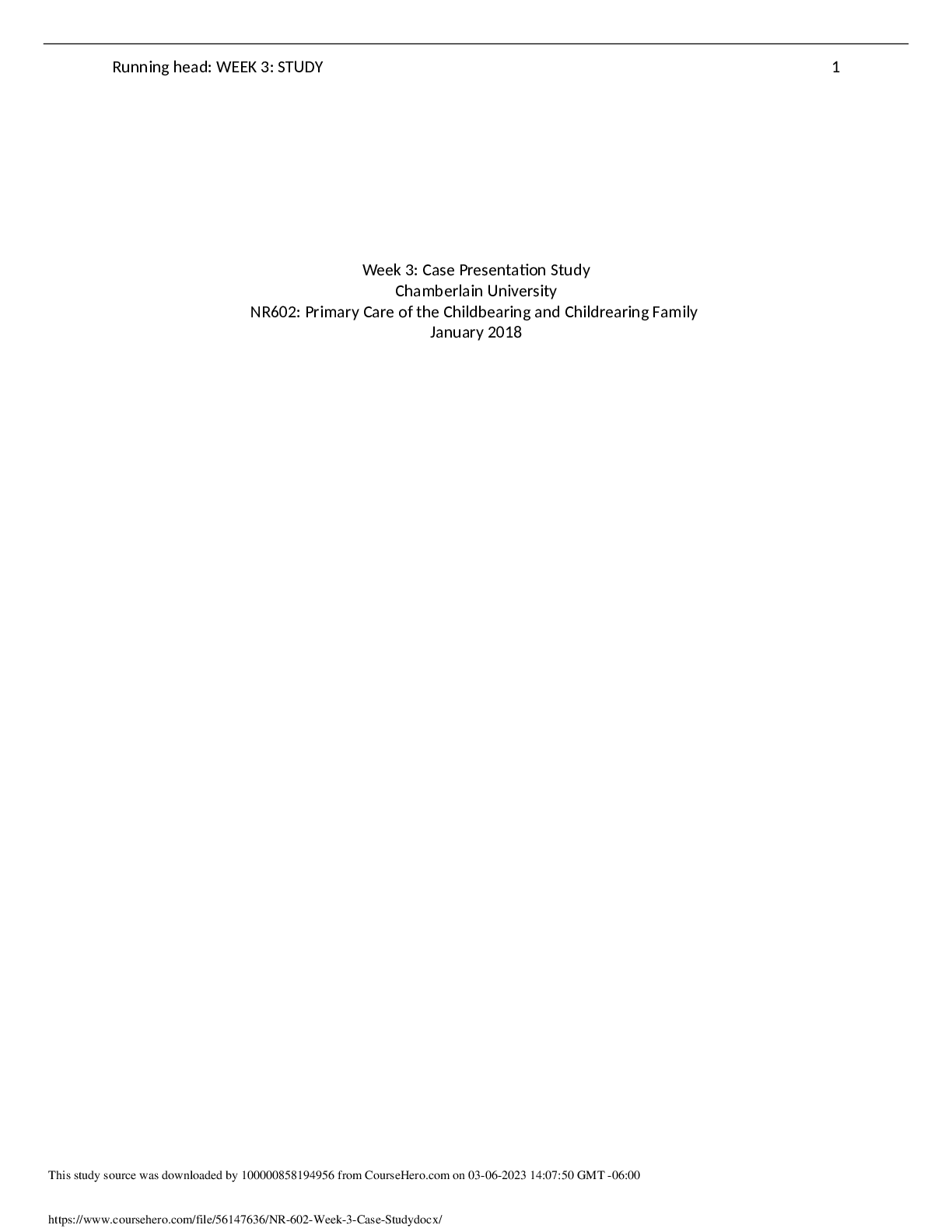Pathophysiology > CASE STUDY > NR-283 Week 5 Concept Process Assignment Guidelines #2: Irritable Bowel Syndrome (All)
NR-283 Week 5 Concept Process Assignment Guidelines #2: Irritable Bowel Syndrome
Document Content and Description Below
Concept Process: Irritable Bowel Syndrome XXXX Chamberlain University NR 283: Pathophysiology Concept Process: Irritable Bowel Syndrome Irritable Bow... el Syndrome (IBS) is a “gastrointestinal disorder with manifestations of abdominal pain/discomfort and changes in normal bowel habits (Hubert and VanMeter, 2017)”. The pathophysiology is “the rapid transit time of feces through the bowel. This causes hypersensitivity on the enteric system (Hubert and VanMeter, 2017)”. The basic concept of IBS is gastric motility, “which refers to the movement of food from the mouth through the pharynx (throat), esophagus, stomach, small and large intestines and out of the body (UC San Diego Health, n.d)”. The small intestine is “approximately 20 feet long, which makes it the longest part of the digestive system. Here, most of the nutrients and minerals from food are absorbed into the body (UC San Diego Health, n.d)”. The large intestine, “also known as the colon, is responsible for absorbing water from undigested food. Food is transported through the large intestine to the rectum, where it is expelled from the body (UC San Diego Health, n.d)”. A gastrointestinal (GI) motility disorder can cause feelings of severe constipation, recurrent vomiting, bloating, diarrhea, nausea, and weight loss (UC San Diego Health, n.d)”. IBS is a GI motility disorder. Health promotion and disease prevention include “eating more fiber, avoid gluten, and follow a special diet called FODMAP (Chang, 2017)”. The risk factors for IBS include “Certain medications, family history of digestive diseases, stress, anxiety, certain foods (Chang, 2017)”. Expected findings in IBS include “bloating, gas, alternating diarrhea and constipation, lower abdominal pain, diarrhea, constipation, nausea, fecal urgency and incomplete evacuation of bowels (Hubert and VanMeter, 2017)”. Laboratory tests that can be done include “stool samples, blood test, hydrogen breath test, upper GI endoscopy, colonoscopy (Chang, 2017)”. For IBS, the “diagnosis is based on the established signs and symptoms and the exclusion of any structural or metabolic problems that can produce similar manifestations. Testing for food allergies, bacterial or parasitic infections, and problems such as lactose intolerance can be used to confirm the disorder (Hubert and VanMeter, 2017)”. Safety considerations include “infections, psychosocial factors, and dehydration (Hubert and VanMeter, 2017)”. Nursing care includes “providing the client with reassurance and emotional support to help decrease anxiety and increase their sense of control over the situation and its management (RNpedia, 2017)”. Medications for IBS include “Lotronex and Amitiza. These medications are almost exclusively for women because of the variety of causes, research into new treatments and therapies is ongoing (Hubert and VanMeter, 2017)”. The interprofessional care that is a part of the client’s care include their “family medicine doctor, gastroenterologist, and their internist (Khatri, 2017)”. The therapeutic procedures include “stress management, and proper dieting (FODMAP) (RNpedia, 2017)”. The complications that can occur include “hemorrhoids, dehydration, impacted bowels, nutritional concerns, poorer quality of life (Burakoff, 2020)”. Patient education that should be included are “Eating a well-balanced diet, exercising regularly, drinking 6-8 glasses of water daily, adhering to a regular eating schedule (RNpedia, 2017)”. To diagnose gastric motility “doctors review your symptoms and medical and family history and perform a physical exam. In some cases, doctors may order tests to rule out other health problems. Your doctor will ask about your symptoms and look for a certain pattern in your symptoms to diagnose (UC San Diego Health, n.d.)”. It is important for the client to understand if they are “experiencing repeated episodes of abdominal pain and their bowel habits have changed dramatically over the past three months, they absolutely should make an appointment with their doctor (Burakoff, 2020)”. Reference Burakoff, R. (2020, June 18). Identify the Signs, Symptoms and Complications of IBS. Verywell Health. https://www.verywellhealth.com/ibs-symptoms-4014377 Chang, L. (2017, November). Treatment for Irritable Bowel Syndrome. National Institute of Diabetes and Digestive and Kidney Diseases. https://www.niddk.nih.gov/health- information/digestive-diseases/irritable-bowel-syndrome/treatment Hubert, R. J., & VanMeter, K. (2017). Gould’s Pathophysiology for the Health Professions. Elsevier. Khatri, M. (2017, June 15). Meet Your IBS Medical Team. WebMD. https://www.webmd.com/ibs/ibs-medical-team RNpedia. (2017, July 9). Irritable Bowel Syndrome (IBS) Nursing Management. https://www.rnpedia.com/nursing-notes/medical-surgical-nursing-notes/irritable-bowel- syndrome-ibs-nursing-management/ UC San Diego Health. (n.d.). Motility and Physiology. Retrieved June 5, 2021, from https://health.ucsd.edu/specialties/gastro/areas-expertise/motility- physiology/Pages/intestinal-motility.aspx [Show More]
Last updated: 1 year ago
Preview 1 out of 5 pages
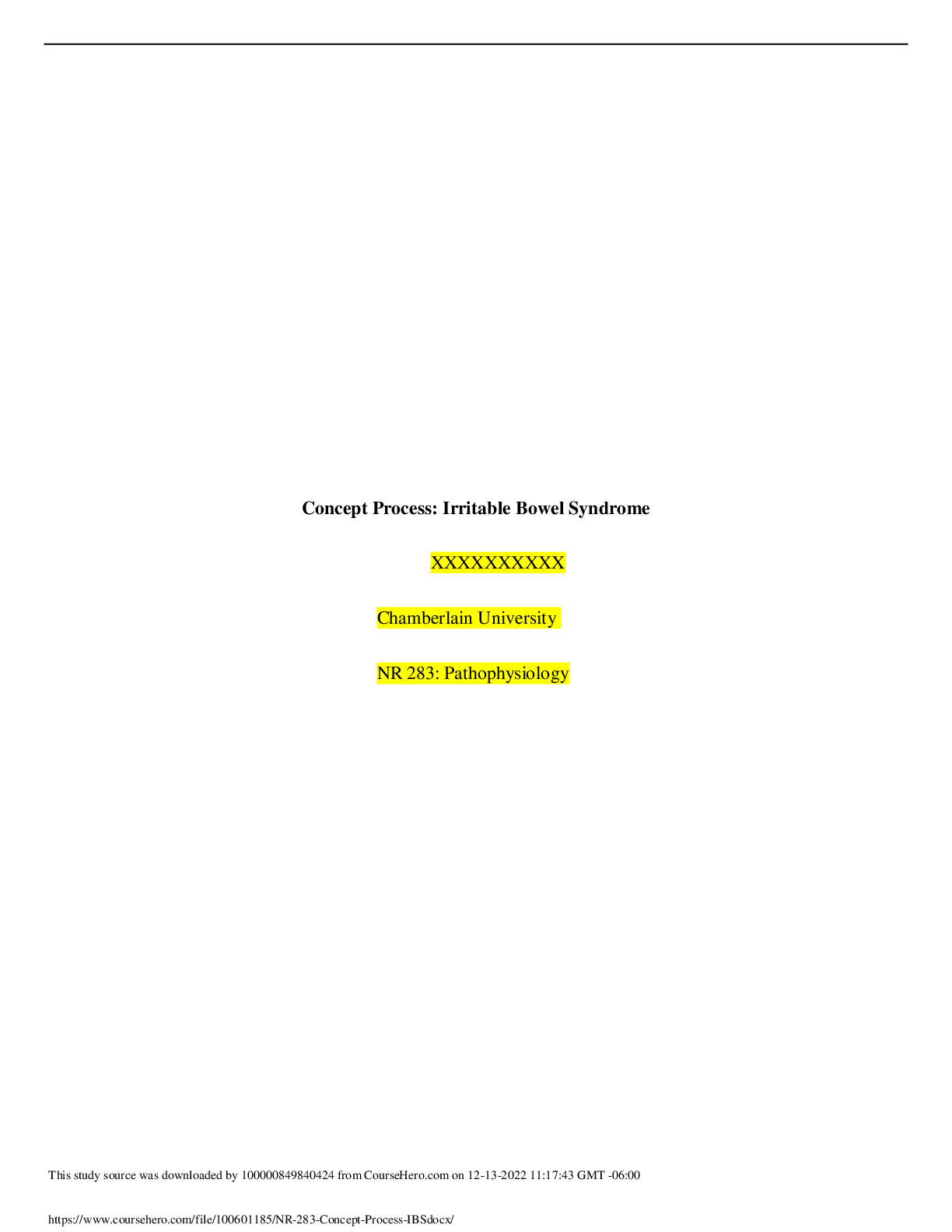
Buy this document to get the full access instantly
Instant Download Access after purchase
Add to cartInstant download
We Accept:

Reviews( 0 )
$11.00
Document information
Connected school, study & course
About the document
Uploaded On
Jun 21, 2022
Number of pages
5
Written in
Additional information
This document has been written for:
Uploaded
Jun 21, 2022
Downloads
0
Views
66

